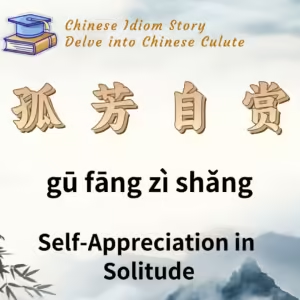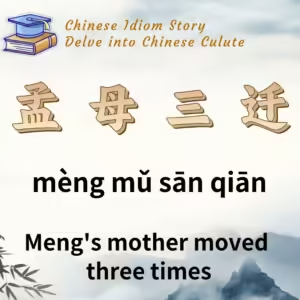
Chinese Idiom: 心旷神怡 (Xin Kuang Shen Yi)
English Translation: Relaxed and Delighted
pīn yīn: xīn kuàng shén yí
Idiom Meaning: This idiom describes a state of mental clarity and emotional happiness, often achieved when one is in a pleasant environment or situation..
Historical Source: Yueyang Tower Memorial (《岳阳楼记》) by Fan Zhongyan
Idiom Story
The idiom “心旷神怡” originates from Fan Zhongyan’s famous essay Yueyang Tower Memorial, written in 1045 during the Northern Song Dynasty. The Yueyang Tower, located in Yueyang City, Hunan Province, overlooks the scenic Dongting Lake.
The tower was initially built during the Tang Dynasty and later renovated by the governor of Yuezhou, Teng Zijing. As a friend of Teng Zijing, Fan Zhongyan was asked to write an inscription to commemorate the renovation.
In his essay, Fan Zhongyan reflects on the different experiences one might have while visiting Yueyang Tower throughout the seasons and times of day. He writes:
“至若春和景明……登斯楼也,则有心旷神怡,宠辱皆忘,把酒临风,其喜洋洋者矣。”
This translates to: “In the spring, when the weather is pleasant and the scenery is bright, ascending this tower makes one’s heart feel expansive and the spirit joyful. All concerns about honor and disgrace are forgotten, and with a glass of wine in hand, enjoying the breeze, one is filled with great happiness.”
Fan Zhongyan’s description of the experience of visiting Yueyang Tower during such a serene and beautiful time led to the popularization of the phrase “心旷神怡.” It has since been used to describe the feeling of being emotionally and mentally uplifted in a tranquil and pleasing environment.






